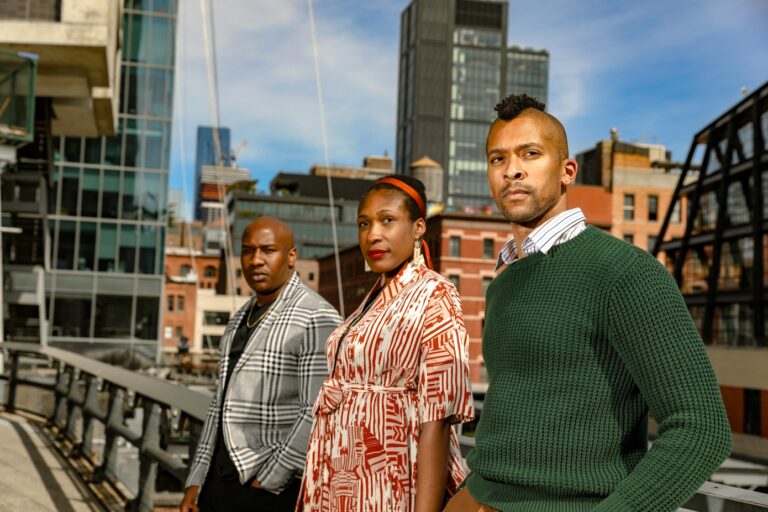As we celebrate Black History Month, it is just right that we highlight the role of big tech in empowering black people.
During Black History Month in 2021, Black Googlers and other Black Alphabet employees were invited to an unofficial training on angel investing. The training was put together by Google employees to train interested persons on the basics of sealing startup deals, the typical timeframe for a possible exit, and other important topics on startups.
The purpose of the training was to solely provide employees with an opportunity to learn about angel investing from their colleagues. Jessica Verrilli, a general partner with GV – formerly Google Ventures was among the keynote speakers.
Candice Morgan, a champion for inclusion and diversity who doubles as a partner at GV says that the event was crucial for encouraging employees to invest together.
Two weeks after the training, five attendees made a bold step to turn Morgan’s idea into reality. Consequently, other attendees were encouraged to join the team. Long story short, Black Angel Group was born. It comprises 35 black leaders and employees from Google, GV, CapitalG, YouTube, and Gradient Ventures.
Former Alphabet employees like Malik Ducard, an ex-VP at YouTube who was recently hired by Pinterest as its chief content creator joined the group.

Image Credits: The Black
Angel Group
Above: Left to right, Jackson
Georges Jr., Candice Morgan and Jason Scott, founding members of Black Angel
Group.
All these are powerful individuals in an even more powerful group and the members have begun using their skills – ranging from product management to software management to user experience to people operations to invest in amazing deals. Since the launch, Black Angel Group has managed to invest over $500,000 in around 10 companies including Bowery Farming, Polar Signals, Matter, and Career Karma.
In all cases, a committee presents deals to groups who then choose their desired investment. Hitherto, half of the deals have highlighted companies founded by black people and in one case the founders were all former Black employees of Google. Notwithstanding, the objective is neither backing companies with Black founders nor firms founded by Google employees or its alums. The emphasis, as explained by Jackson George Jr. – a growth partner at CapitalG is on high-principled seed to Series A-stage firms.
This is what George Jr. said, “We’re Black angels, and Black angel networks are typically more diverse than most angel networks,” he added, “the primary focus, however, is on figuring out the best deals to create generational wealth for its members”.
This explains why the Black Angel Group is ready to expand its profile and invest in more deals. A crucial part of expanding the group will come in the form of dollars. The organization is expected to invest many times what it invested last year.
Another part of the growth will be realized through new members. According to John Scott, the head of startup ecosystems for Google, the angel program was a foundation for many members. Scott says, “Participating in that angel program [last year] was the foundation for a lot of members. But we’re now launching a process so that other interested Black-identified Googlers and Alphabet members can apply to join.”
One does not need to be a millionaire to be a member. In fact, the idea is not to get accredited investors in the group but to make it inclusive for everyone including those who are not accredited investors but are on track to becoming them.
George Jr. argues that training employees or alums rising to managerial positions who are keen to learn startups and investments is a win for the group. As the adage goes; there is strength in numbers.
Surely, the sphere of Black investors could use some expansion. Presently, Black investors make less than 4 percent of venture partners and only 1 percent of angel investors. With such meager numbers, there is plenty of room for improvement as far as Black Angel investors are concerned.
As a matter of fact, Black Angel Group is expected to seal more deals from now on given the extensive experience of group members, their desire to fund more businesses, and the willingness to bring in more diverse investors.

Candice highlights the CEO of insight startup Polar Signals – Frederic Branczyk who focuses on diversity. She states, “An important part of our value proposition is working with founders who have values aligned with us. A focus on diversity gives us a lot of signals about those founders as well.”
As companies like Alphabet continue to invest in Black investors, the number of black founders and investors is expected to go up in 2022. While the numbers are still small, it is crucial to appreciate the progress that black people have made despite all the socio-economic challenges.
Take some time to learn about investing and wealth generation – after all wealth empowers communities and puts them on a path to prosperity and absolute freedom.
Do you think tech companies can do more to help Black investors? Leave a comment below.

